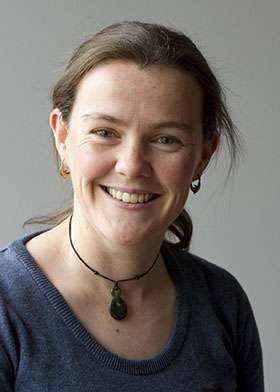Cold kids hot to trot in winter

(Medical Xpress)—Children are more active in winter than in spring and summer, a breakthrough Deakin University study has found.
The surprise findings by researchers at the University's Centre for Physical Activity and Nutrition Research (C-PAN) contrasts with previous studies that have concluded that children are more active in summer when the weather is better and the days are longer.
Rather than being restrained indoors during cold weather, children engaged in more sporting activities in winter than they did in summer, according to C-PAN researcher and study leader Dr Nicky Ridgers.
"Our research showed that compared to winter (term 3), children were most active in autumn (term 2) and were least active in spring (term 4) and summer (term 1)," Dr Ridgers said.
"The findings suggest there is a need for physical activity programs to be delivered to primary school children to encourage them to be active even when the weather improves and temperatures start to rise."
C-PAN's Patterns of Habitual Activity across Seasons (PHASE) study also revealed that girls were generally less active than boys.
"These findings suggest that interventions may also need to be specifically developed to target girls' activity levels throughout the year."
C-PAN researchers followed 326 children in Grades 4 and 5 from nine Melbourne primary schools in a year-round study to measure their activity levels across the four seasons.
They fitted the kids with accelerometers and inclinometers to record how often the children sat, stood and moved and asked children and parents to complete surveys to find out about children's activity levels and behaviours through the seasons.
Dr Ridgers, whose studies in to children's activity levels and patterns earned her an Australian Research Council Discovery Early Career Research Award in 2011, said the study results had been surprising.
"These findings contrasted with the majority of previous literature that has found children are typically more active in summer than winter months, which is usually attributed to more favourable weather conditions.
"Interviews with teachers at participating schools revealed that the autumn and winter months were the main times of the year that structured school sports were regularly provided for children through interschool sports competitions.
"Preliminary analyses indicate that one third of girls did not participate in structured sports during the different terms compared to about one fifth of boys which could explain some of the differences between the sexes that we detected."
Dr Ridgers said the seasonal research project examined changes in children's physical activity levels across the seasons and explored the patterns that occurred.
Children aged 5-18 need at least 60 minutes of moderate to vigorous intensity exercise each day, which is important for children's overall physical, social and mental health, Dr Ridgers said.
"However recent estimates indicate that only 22 per cent of boys and 20 per cent of girls aged 9-11 years met the national physical activity recommendation.
"In order to develop and deliver programs that increase children's activity levels, it is important to examine how much physical activity children engage in across the day and how this may vary between seasons.
"Our findings suggest that we do need to target specific times of the year to increase children's physical activity levels. The next step will be to identify potential strategies that could be implemented throughout the day and establish the feasibility and effectiveness of such approaches."












.jpg)





